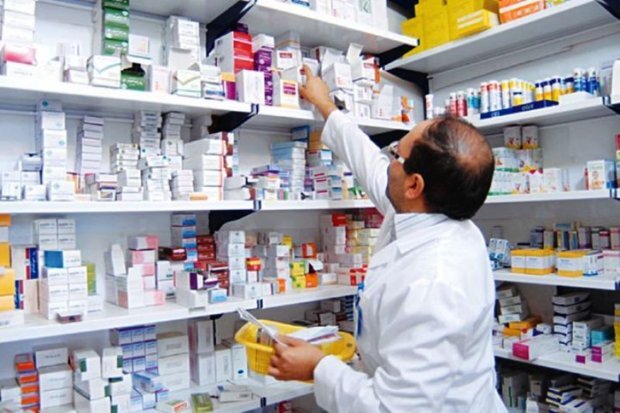
Referring to what he called “high economic pressure on pharmacies,” the vice president of the Iranian Pharmacists Syndicate criticized the banks’ lack of cooperation with the implementation of the pharmaceutical plan and said: Why are we still importing serum from abroad and on the list? Of the imported emergency medicines, is there a cold drink? These medicines have been produced domestically for 60 years, and the import of many of these medicines has been unprecedented.
Dr.. Seyyed Ali Fatemi in conversation with informants. In response to the Minister of Health’s recent statements about the ministry’s plan for full drug coverage in insurances with the aim of reducing out-of-pocket payments, he said: Commenting on increasing insurance liabilities and increasing insurance coverage on medicines is a very good thing. The objective in terms of speech, but who should ask the pocket of this promise? If it is supposed to be done from private pocket, then it is incorrect. To announce to the private sector that you provide services and goods that you buy with cash on behalf of the government with high insurance coverage for people, and we will calculate the money with you later. It is certain that such work leads to the weakening and destruction of the private sector, especially private pharmacies which are being destroyed in this cycle.
And he added: The pharmaceutical plan that began on July 23, 1401, according to which the government’s obligations to cover drug prices increased from 70% to 95%, and more than 300 medicines that were not covered by insurance were included in this plan. They’ve come into insurance, but the experience we’ve had working in medicine and in the form of a pharmaceutical plan shows that payments are usually very late. At the same time, the delay in paying private sector pharmacy claims has devastated the private sector. Until pharmacies are harmed in the first step, and after the pharmacy, distribution companies, pharmaceutical factories, and all institutions that depend on the sources of riyal medicines are harmed, and put pressure on them.
The uncertain horizon of the drug budget
Fatimi said: On the other hand, considering that for this year a budget lower than that proposed by the Ministry of Health for medicine was considered, I do not know how to progress in the field of medicine. In 1402, the same 69 thousand billion tomans were proposed for the pharmaceutical budget. Of course, apparently, promises were made that if this amount of funding is not met by the end of the first half of the year, they will allocate money from other sources, such as the National Development Fund, to the field of medicine. While they do not notice that this procedure takes time. At the same time, unlike before, when the subsidy was paid in foreign currency to the first link to supply medicines, it is now being paid in riyals to the last link, which is the pharmacy, and until this money reaches the pharmacy, the distribution company and the pharmaceutical factory, it will still be a long time now, including That the factory receives money and wants to import raw materials and start production, it still takes time. Meanwhile, in the field of medicine, time is very important. Because the medicine must reach the patient on time. Given the uncertain horizon that exists in the pharmaceutical plan budget area, how do they want to increase insurance liabilities in medicine.
3 months delay for 2 insurance in paying pharmaceutical claims to pharmacies
And he continued: The performance in the field of medicine in the field of paying obligations to the private sector in the months in which the pharmaceutical plan was implemented was not good, and the private sector often complains and is not satisfied. Currently, health insurance claims are paid well and are settled on time, but unfortunately the situation of social insurance and the armed forces is not as such, as it is three months late in payment.
Fatemi stressed: If the government intends to increase insurance liabilities for medicines, it must first pay off its debts to the insurance bodies and have a fund full of money with which they can do so. But if these actions can not be performed. The private sector cannot give medicine to people. Before the medicine plan, which was backed by foreign currency until the beginning of the supply chain, the factory did not import medicine until it got the money, and as a result there was a shortage of medicine, but now the pharmacy is forced to do so. He buys medicine from distribution companies with cash, he buys medicine with cash, he also has to provide medicine to people who have insurance coverage, so if the government does not give money to the pharmacy, it will put a lot of economic pressure on the private sector.
High economic pressure on pharmacies
Medicines with a production history of 60 years are on the urgent import list!
The vice president of the Iranian Pharmacists Syndicate stated that the economic pressure on pharmacies increased significantly after the drug plan, and said: At the same time, the problem of liquidity for the supply of medicines has not been resolved. Because when drug prices go up, factories need more liquidity to supply drugs. Although some issues such as value-added tax and … were resolved, banks were supposed to provide working capital for pharmaceutical manufacturing companies, which did not happen and most banks did not fulfill their obligations. One must ask why we still need to import serum from abroad? Why should there be so simple names for cold juices on the list of emergency medicines imported from abroad? While these drugs have been produced in the country for 50 to 60 years, the importation of many of these drugs has been unprecedented.
Fatimi emphasized: The reason for this issue is that in recent years we have not built enough capacity and the capacity of our pharmaceutical factories has not changed in proportion to the population, and this is what leads to high consumption and the inability of factories to Production handling. Because they do not have the liquidity to supply raw materials, nor the budget to increase production capacity. These problems make our pharmaceutical industry unable to meet the long-term needs.
The latest drug shortage
Regarding the shortage of medicines, he said: We still have a shortage of some pharmaceuticals. Of course, last year we had a problem with the supply of insulin that has not really been resolved or there is no shortage of serum as much as before, but there is a shortage in the field of antipsychotics, antidepressants and some drugs for certain patients.
Fatimi also said in another part of his talk about the latest status of tariffs for pharmaceutical services: Fortunately, the issue of tariffs for pharmaceutical services was resolved this year. The tariff for pharmaceutical services was approved in the Budget Law of 1400. In 1401, this topic was included in the Budget Law, but since it was accompanied by the clause related to the electronic prescription, this clause was canceled, as was the tariff for pharmaceutical services. At the same time, in 1402, fortunately, in Clause F of Note 17 of the Budget Law, the tariffs for pharmaceutical services were raised again, and this year we have no problem with that. This tariff must also be announced by the Supreme Insurance Council and finally the Council of Ministers in the form of Medical Tariffs 1402.
the end of the letter










